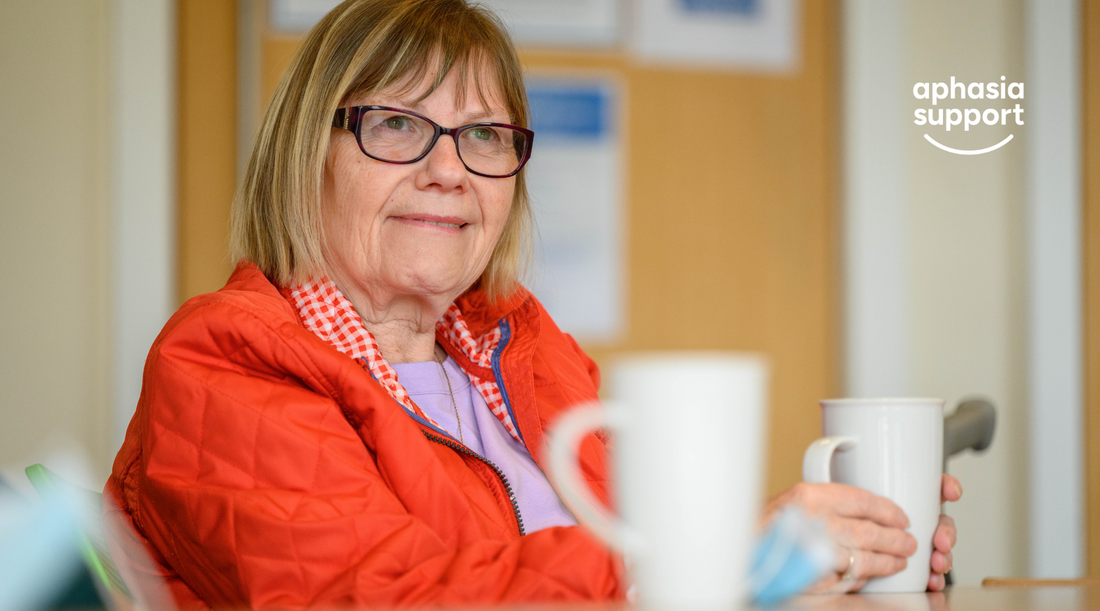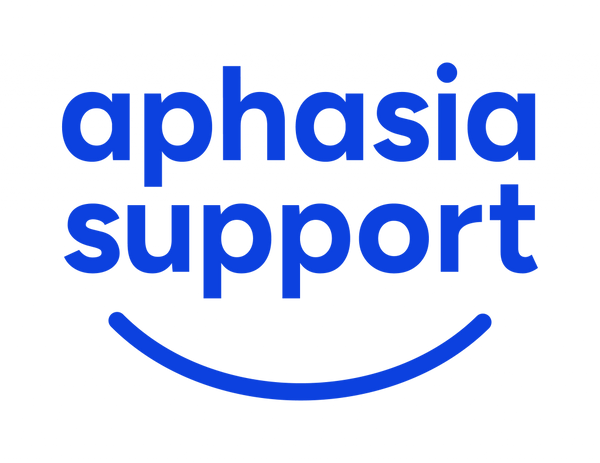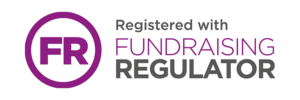Understanding Stroke and Aphasia

What is a stroke?
A stroke is when blood stops flowing to a part of your brain. It can happen to anyone of any age and affects everyone in different ways.
Did you know?
- 1 in 4 stroke survivors are of working age. (Stroke Association)
- Over the last two decades, stroke admissions have increased by 28%, with the largest rise (55%) among people aged 50–59. (NHS England)
- There are 1.3 million stroke survivors in the UK.
Stroke is the leading cause of aphasia
When a stroke damages the parts of the brain responsible for language, it can lead to aphasia - a profound loss of communication abilities.
Aphasia is a communication disorder that affects speaking, understanding, reading, and writing.
Did you know?
- 1 in 3 stroke survivors will develop some form of aphasia. (Stroke Association)
- 85% of the UK population don’t know what aphasia is. (Stroke Association)
- 350,000 people in the UK currently live with aphasia. (Stroke Association)
Types of aphasia
Aphasia is one of the most devastating and least understood consequences of stroke. No two experiences of aphasia are the same.
The most common types of aphasia are:
- Expressive aphasia - where a person may understand language but has difficulty speaking, writing and finding the words to communicate what they want to say.
- Receptive aphasia - where a person may be able to speak fluently but struggles to make sense of what others are saying.
Aphasia can be mild, moderate or severe. Tailored speech and language therapy is the most effective treatment for aphasia, especially when it's delivered early, frequently and in high doses.
Seeking Support
Experiencing a stroke is a life-altering event. For many survivors, the journey doesn’t end after hospital discharge - it begins a new, often challenging chapter. This is especially true for those who develop aphasia, a condition that can make it harder to ask for help - just when it’s needed most.
Below, we've included a list of organisations you can reach out to for support. This list isn’t exclusive, and we encourage you to speak with your GP or healthcare provider to help you find local and personalised support options that best meet your needs.
NHS Services
-
- Website: www.nhs.uk/conditions/stroke
- Stroke Units – Specialist hospital wards providing acute care for stroke patients.
- Community Stroke Rehabilitation Teams – Multidisciplinary teams offering physiotherapy, occupational therapy, and speech and language therapy at home or in outpatient clinics.
- Speech and Language Therapy (SLT) – Essential for those with aphasia or communication difficulties. Access varies by region; speak to your GP or stroke consultant for a referral.
- Mental Health Services – Psychological support or counselling may be available through NHS Talking Therapies
Aphasia Support
-
- Website: www.aphasiasupport.org
- Telephone: 0300 102 3500
- Specialist charity providing speech and language therapy and long term support for people with aphasia and their families, including: online resources, localised 1:1 speech and language therapy, regional Aphasia Cafe group support and community rehabilitation, iPad loan scheme equipped with bespoke therapy apps
Stroke Association
-
- Website: www.stroke.org.uk
- Helpline: 0303 3033 100
- UK’s leading stroke charity, providing: information on stroke and recovery, Life After Stroke Services, local support groups and volunteer networks, My Stroke Guide – free online recovery platform for stroke survivors and carers
Different Strokes
-
- Website: www.differentstrokes.co.uk
- Telephone: 0345 130 7172
- Run by and for younger stroke survivors, particularly those of working age, providing: peer support network, exercise classes, resources on returning to work and family life, online and local support groups
Say Aphasia
-
- Website: www.sayaphasia.org
- Telephone: 0800 043 2335
- Community-focused charity providing: drop-in support groups, in-person and online meetups, peer support.
Dyscover
-
- Website: www.dyscover.org.uk
- Telephone: 01737 819419
- Specialist charity supporting people with aphasia through: group-based programmes, online and in-person sessions, peer-led conversation groups, outreach and training for professionals.
Chest Heart & Stroke Scotland (CHSS)
-
- Website: www.chss.org.uk
- Telephone: 0808 801 0899
- Focuses on support for people in Scotland, offering: rehabilitation support workers, peer support groups, carer assistance, advice on managing aphasia and emotional wellbeing
Northern Ireland Chest Heart & Stroke (NICHS)
-
- Website: www.nichs.org.uk
- Telephone: 028 9032 0184
- Focuses on supporting people in Northern Ireland living with stroke, aphasia, and related conditions including: post-stroke rehabilitation programmes, communication support for aphasia, family support and counselling, health promotion and stroke prevention
F.A.C.T - Recognising the signs of stoke
Awareness can save a life. Here's what you need to know:
F – Face: Has the person's face fallen on one side? Can they smile?
A – Arms: Can they raise both arms and keep them there?
S – Speech: Is their speech slurred or garbled? Are they unable to talk?
T – Time: Time to call 999 immediately.

